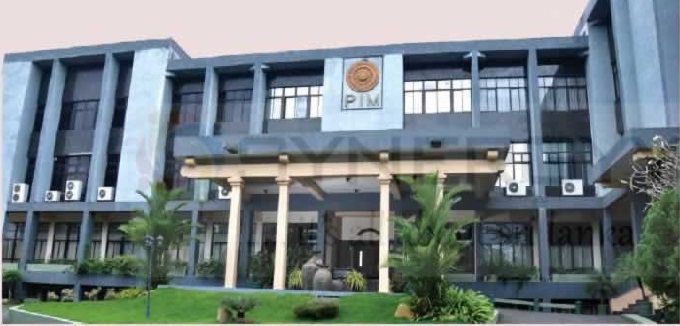
Postgraduate Institute of Management
Postgraduate Institute of Management
Overview

The Postgraduate Institute of Management (PIM) is a semi-autonomous body affiliated to the University of Sri Jayewardenepura. Its objectives are to promote advanced education and professionalism in management in Sri Lanka through the provision of postgraduate instruction, training, research, and development in the various branches of management and administrative studies. Today, it serves the national interests of professional management education and training on a wider scale providing challenging opportunities for learning and skills development to thousands of senior-level managers and administrators. Being the pioneer of advanced management education in Sri Lanka, PIM provides leadership to those who are in the business of innovating and disseminating management know-how as well as to those who are in search of higher learning alternatives.
PIM Full-time Faculty
Over a period of nearly two decades, PIM has accumulated a wealth of experience in adult learning, research and consultancy. Most of the teachers of the Institute today have been at the task for many years and hence they form a core team of academics who set standards, integrate locally-found knowledge into regular curricula, and coordinate among the many faculty members with speed and flexibility.
Our faculty team comprises permanent teachers, teachers on contract (full-time and part-tune), and visiting academics/professionals.
The Institute and the University
PIM, established in 1986 by Ordinance under the Universities Act 1978, is one of the six postgraduate institutes in the university system of Sri Lanka. Though it is relatively young, it has the largest student population among the Institutes, and it is the only self-financing higher learning institution in the university system of the country.
The University of Sri Jayewardenepura, to which PIM is affiliated, is 41 years old. In fact, it is much older if one counts the long years of its history as a seat of learning. The history of this Institute dates back more than a century to 1873, when the Ven. Hikkaduwe Sri Sumangala NayakaThero laid the foundation of this distinguished centre of learning as a pirivena (Institute of Buddhist and Oriental Studies) named Vidyodaya (meaning "awakening of knowledge").
In 1958, it was reconstituted as the Vidyodaya University of Ceylon by an Act of Parliament. Under the Universities Act of 1978, it was re-named "University of Sri Jayewardenepura" in the new administrative capital of Sri Lanka. Today, its full-time student population is over 4,500 enrolled in the faculties of Arts, Management Studies and Commerce, Applied Sciences, Medical Sciences, and Graduate Studies.
International Cooperation
The Konrad Adenauer Foundation of Germany (KAF) has been an active supporter of PIM's activities. Since 1991, it has supported education, training, research and publications in public administration, local and provincial government, and general management. It will continue its assistance in the years to come with a greater emphasis on comparative management and business practices, local government, and collaborative research.
The Institute is looking forward to collaboration with institutions of higher learning in the region, East Asia and Australia for the purpose of promoting research in comparative management, doctoral studies and development of specialization in such areas as Banking, Finance, Technology Management, Hospitality Management and Entrepreneurship.
Cooperation with foreign universities and foreign management institutes has been a principal means by which the groundwork for PIM has been laid over the past two decades. PIM gives high priority to the development of links with reputed educational institutions abroad. The desire to develop expertise and promote disciplinary development in the international context is the driving force behind the quest for cooperation. The policy of the Institute is to cooperate with centres of higher learning worldwide. In particular, PIM looks forward to establishing links with centres of excellence in the Asia-Pacific Region (such as the Asian Institute of Technology in Thailand), the South Asian Association for Regional Cooperation (SAARC), the Indian Institutes of Management (IIMs), and Universities in Australia. PIM leaves areas of cooperation open with a view to achieving the wider purposes of management education. In practically every field of specialization at the Institute, collaborative ventures are welcome.
Collaborative research into local and regional phenomena, both fundamental and applied, is one of the primary purposes of PIM. The staff of PIM, both regular and visiting, are involved in research, and the current projects cover areas such as socio-cultural foundations of management, development of industrial policies and industry competitiveness, and administrative reforms in the public sector.
What can PIM offer to the visiting foreign faculty? PIM classrooms provide a forum for the meeting of minds. PIM's postgraduate students, with their extensive experience in local business, differing approaches and attitudes to work, people and organizations, present a rich and stimulating learning environment. In fact, it is such classroom dynamism that the visiting foreign faculty enjoys most.
As a matter of policy, PIM offers to the visiting foreign faculty a remuneration package which includes professional fees, accommodation, transport, and secretarial and IT communication facilities.

